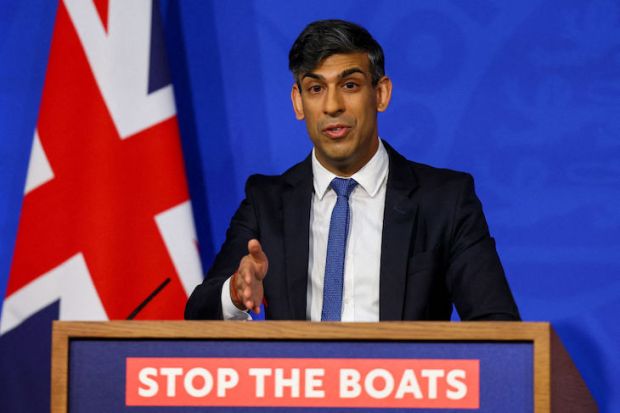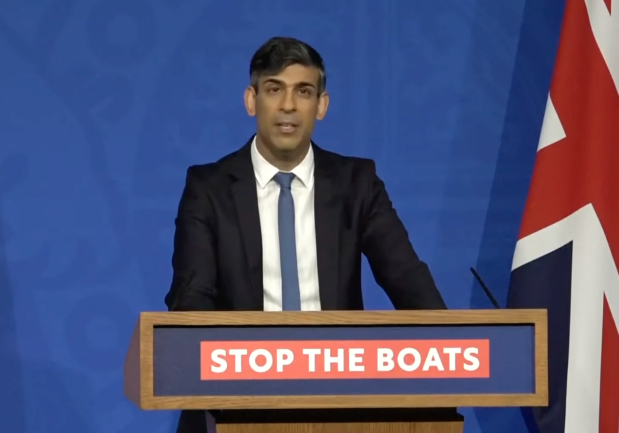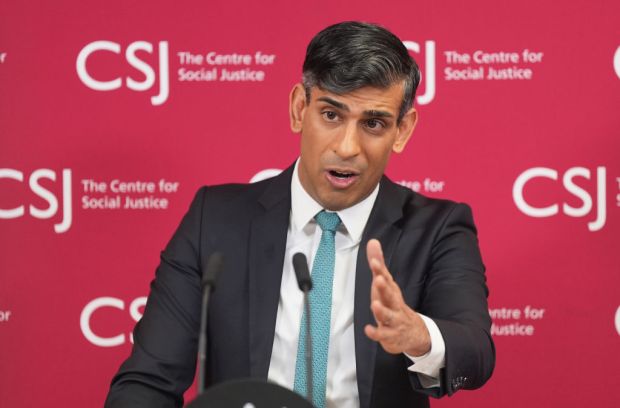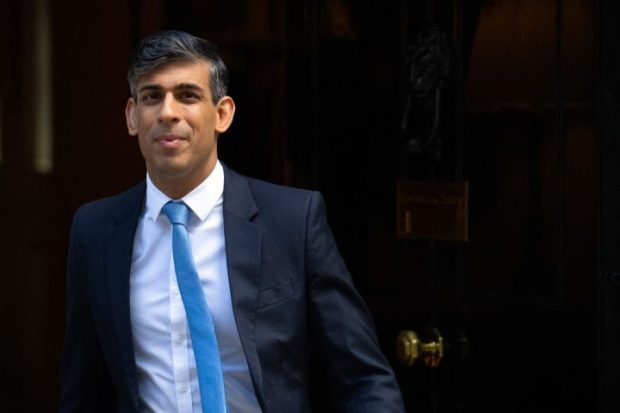Whatever his myriad faults and foibles, Boris Johnson has the one essential quality that Napoleon demanded of his generals: luck. A few weeks ago, the Prime Minister was on the point of being dethroned by his own MPs. Today, thanks to two men, Vladimir Putin and Rishi Sunak, he strides the stage again, basking in the praise of president Volodymyr Zelenskyy as Ukraine’s most doughty and effective international defender.
Johnson owes his survival and resurrection to his firm response to Putin’s brutal invasion, but also to the abrupt political implosion of the colleague who was being lined up – not least by himself – to succeed him: Chancellor Rishi Sunak. As the war in Ukraine grinds on into a bloody stalemate, the partygate affair is returning to the headlines and may yet endanger the PM. But even if it does, one thing is now certain: Sunak will not inherit the Crown.
Few political descents from hero to zero have been so sudden or so swift. During the two years of the Covid pandemic the Chancellor enjoyed stratospheric levels of popularity with the public and his own party alike as ‘dishy Rishi’ splashed the cash like there was no tomorrow. His bold and decisive action to save the economy with furlough support for those unable to work and the firms who employed them, won plaudits from all sides and elevated him to the status of prime minister in waiting.
Some critics gloomily warned that a day of reckoning was bound to come, when the Chancellor would need to claw back some of the money he had lavished in the form of raised taxes, but even they could not have anticipated the dog’s dinner that was last week’s Spring statement. Apparently oblivious to the reception his sleight of hand would receive, Sunak raised taxation to its highest levels since the 1940s, while failing to offer anything to society’s two most vulnerable groups and the Conservatives’ most solid voting base: the poor and the elderly.
So unanimous was the negative reaction to the mini-budget – stretching across the spectrum from Labour to the Thatcherite Right of the Tories – that there is talk that Sunak will have to prepare a second statement to repair the self-inflicted damage done by the first. His tetchy defence of his strategy in media interviews and his appearance before the Commons Treasury select committee yesterday has also revealed an arrogance he had not displayed in public before. It was almost as if Sunak was affronted that lesser mortals should dare to question him.
‘Sorrows come not as single spies but in battalions,’ Shakespeare wrote in ‘Hamlet’. Now another major dent in Sunak’s hitherto shining armour has appeared after he was questioned about the estimated £690 million stake his wife Akshata Murthy reportedly holds in Infosys, an IT company founded by her billionaire father NR Narayana Murthy that has been criticised for continuing to operate in Putin’s Russia despite the sanctions against the country publicly backed by Sunak.
Quizzed about this apparent anomaly, the Chancellor defensively replied that he was an elected politician but could or would not comment on his wife’s business affairs for which he was not responsible. Coming from the richest man in Parliament, his indignant response revealed a tin ear to a widespread feeling that he is out of touch with a public struggling to cope with a rocketing cost of living crisis that, with his own vast wealth, the Chancellor cannot begin to imagine.
This feeling was compounded by the elementary PR errors Sunak made in his public appearances before and after his statement: borrowing a small car from a supermarket employee, filling it with fuel and then showing that he didn’t know how to make a contactless payment was not the best way of demonstrating his understanding of how the other half live. Nor was his unguarded revelation that his family enjoys several different types of loaf when eating their daily bread. Nor was his donning a pair of pristine white trainers costing £350 a good look to a country where many are barely making ends meet and are forced to choose whether to heat or eat.
Taken together, this catalogue of unforced errors has at a stroke ruled Sunak out of contention as the next PM. A country facing the biggest financial squeeze in generations will not take kindly to being ruled by a very rich man apparently unable to comprehend what ordinary people are going through. Sunak will join the lengthy list of politicians from Rab Butler to Michael Heseltine to George Osborne who were widely assumed to be the next PM until ‘events, dear boy’ conspired to snatch away the crown that was almost within their grasp.
Got something to add? Join the discussion and comment below.
Get 10 issues for just $10
Subscribe to The Spectator Australia today for the next 10 magazine issues, plus full online access, for just $10.




















Comments
Don't miss out
Join the conversation with other Spectator Australia readers. Subscribe to leave a comment.
SUBSCRIBEAlready a subscriber? Log in